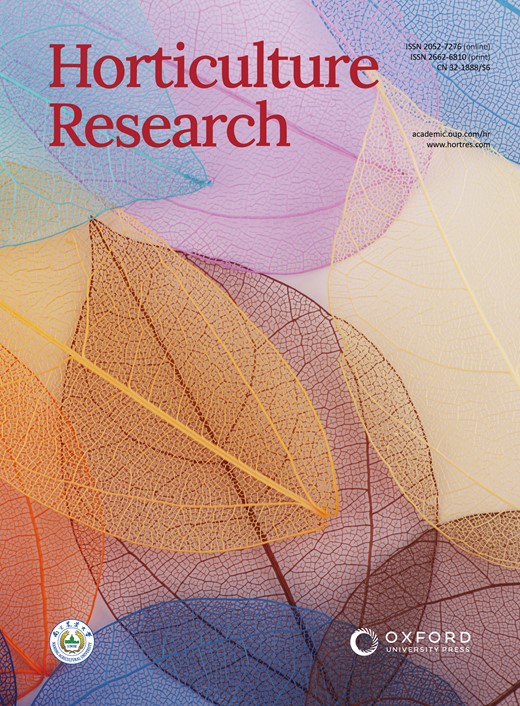A CRISPR/Cas9 Induced Male-Sterile Line Facilitating Easy Hybrid Production in Polyploid Rapeseed (Brassica napus)
IF 8.7
1区 农林科学
Q1 Agricultural and Biological Sciences
引用次数: 0
Abstract
Rapeseed is a globally significant oilseed crop cultivated to meet the increasing demand for vegetable oil. In order to enhance yield and sustainability, breeders have adopted the development of rapeseed hybrids as a common strategy. However, current hybrid production systems in rapeseed have various limitations, necessitating the development of a simpler and more efficient approach. In this study, we propose a novel method involving the targeted disruption of Defective in Anther Dehiscence1 of Brassica napus (BnDAD1), an essential gene in the jasmonic acid biosynthesis pathway, using CRISPR/Cas9 technology, to create male-sterile (m-s) lines. BnDAD1 was found to be dominantly expressed in the stamen of rapeseed flower buds. Disrupting BnDAD1 led to decreased levels of α-linolenic acid and jasmonate in the double mutants (DMs), resulting in the defect of anther dehiscence and pollen maturation. By crossing the DM m-s lines with male-fertile lines, a two-line system was demonstrated, enabling the production of F1 seeds. The m-s trait of the bndad1 DM lines was maintainable by applying exogenous methyl jasmonate and subsequently self-pollinating the flowers. This breakthrough holds promising potential for harnessing heterosis in rapeseed and offers a simpler and more efficient method for producing hybrid seeds.CRISPR/Cas9诱导的雄性不育系,便于多倍体油菜(Brassica napus)的杂交生产
油菜籽是全球重要的油料作物,种植油菜籽是为了满足日益增长的植物油需求。为了提高产量和可持续性,育种者将开发油菜籽杂交种作为一项共同战略。然而,目前的油菜杂交种生产系统存在各种局限性,因此有必要开发一种更简单、更高效的方法。在本研究中,我们提出了一种新方法,即利用 CRISPR/Cas9 技术靶向破坏茉莉酸生物合成途径中的一个重要基因--甘蓝型油菜花药开裂缺陷基因 1(Defective in Anther Dehiscence1 of Brassica napus,BnDAD1),从而创建雄性不育系(m-s)。研究发现,BnDAD1 在油菜花蕾的雄蕊中呈显性表达。破坏BnDAD1会导致双突变体(DMs)中α-亚麻酸和茉莉酸水平下降,从而导致花药开裂和花粉成熟缺陷。通过将 DM m-s 株系与雄性不育株系杂交,展示了一个双株系统,从而生产出 F1 种子。通过施用外源茉莉酸甲酯和随后的自花授粉,bndad1 DM品系的m-s性状得以保持。这一突破为利用油菜籽中的异花授粉提供了广阔的前景,并为生产杂交种子提供了一种更简单、更高效的方法。
本文章由计算机程序翻译,如有差异,请以英文原文为准。
求助全文
约1分钟内获得全文
求助全文
来源期刊

Horticulture Research
Biochemistry, Genetics and Molecular Biology-Biochemistry
CiteScore
11.20
自引率
6.90%
发文量
367
审稿时长
20 weeks
期刊介绍:
Horticulture Research, an open access journal affiliated with Nanjing Agricultural University, has achieved the prestigious ranking of number one in the Horticulture category of the Journal Citation Reports ™ from Clarivate, 2022. As a leading publication in the field, the journal is dedicated to disseminating original research articles, comprehensive reviews, insightful perspectives, thought-provoking comments, and valuable correspondence articles and letters to the editor. Its scope encompasses all vital aspects of horticultural plants and disciplines, such as biotechnology, breeding, cellular and molecular biology, evolution, genetics, inter-species interactions, physiology, and the origination and domestication of crops.
 求助内容:
求助内容: 应助结果提醒方式:
应助结果提醒方式:


